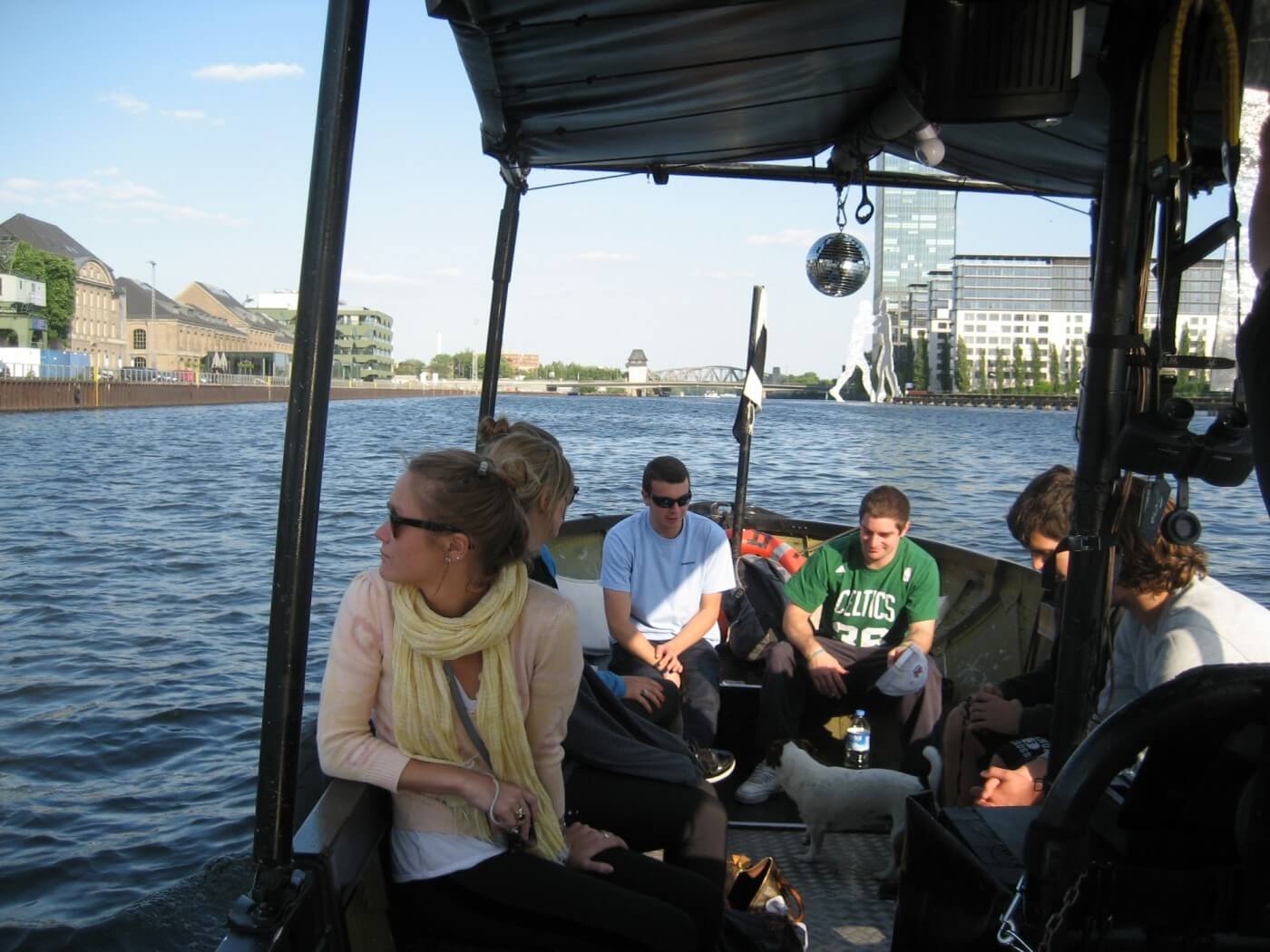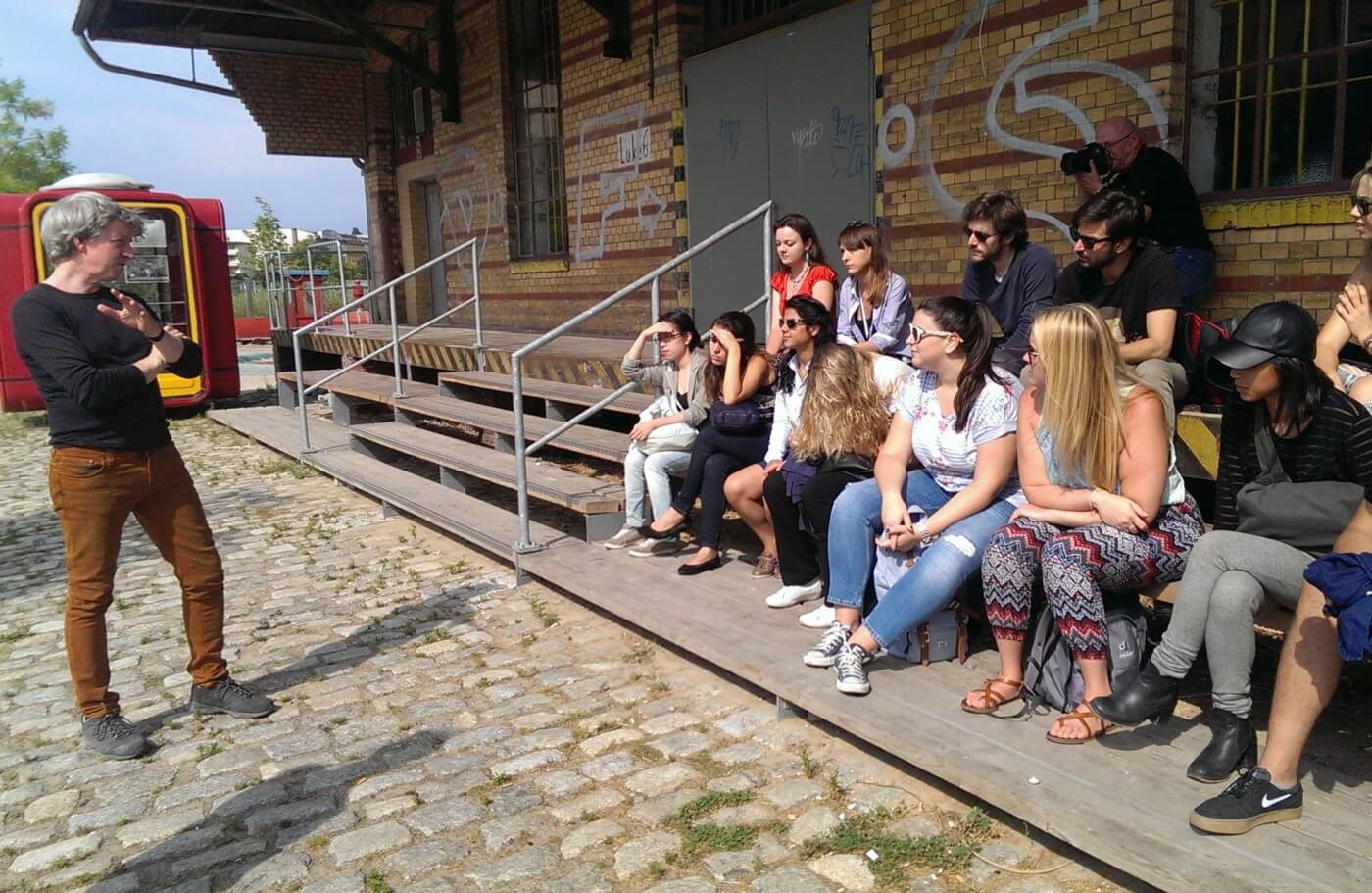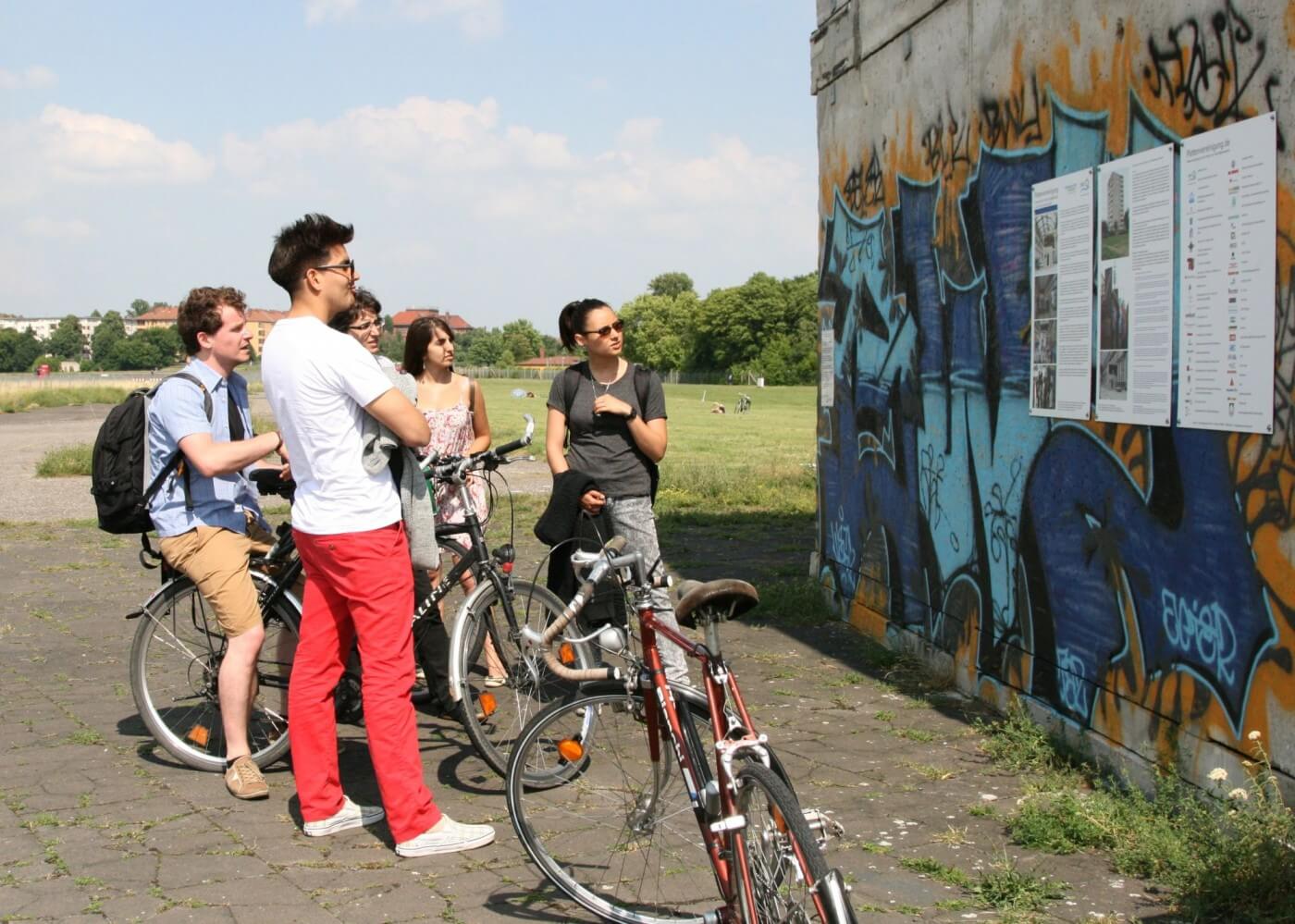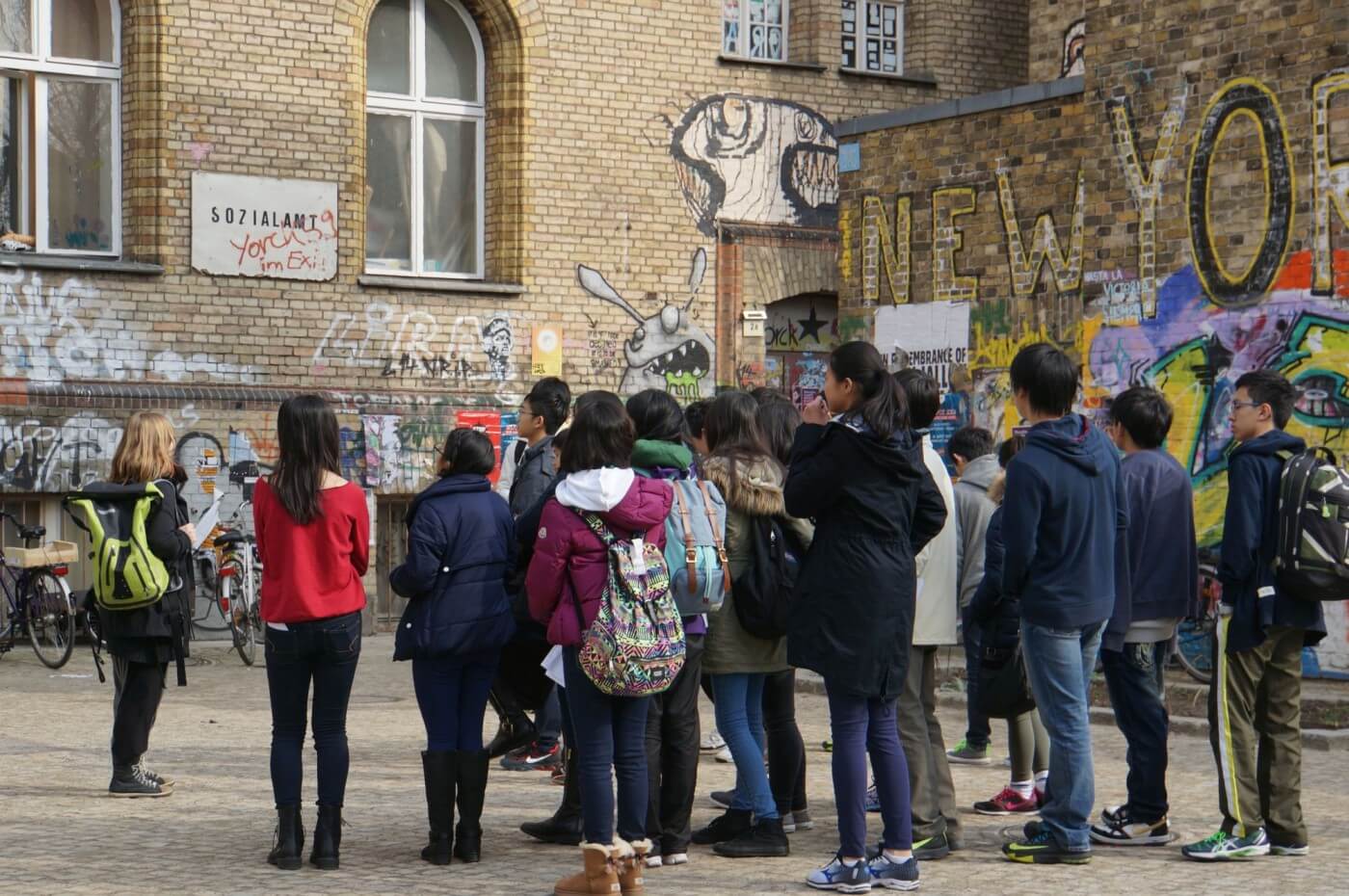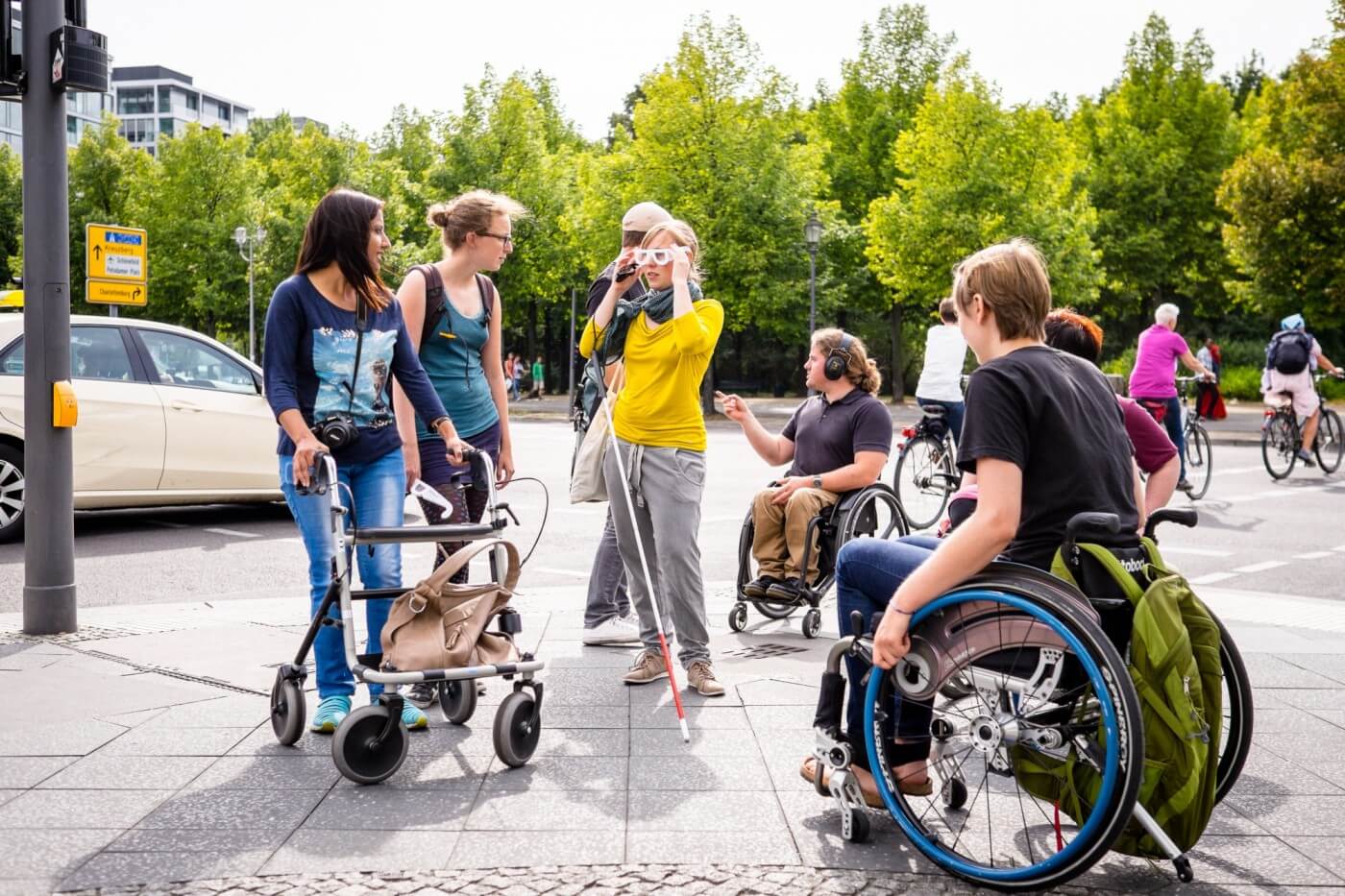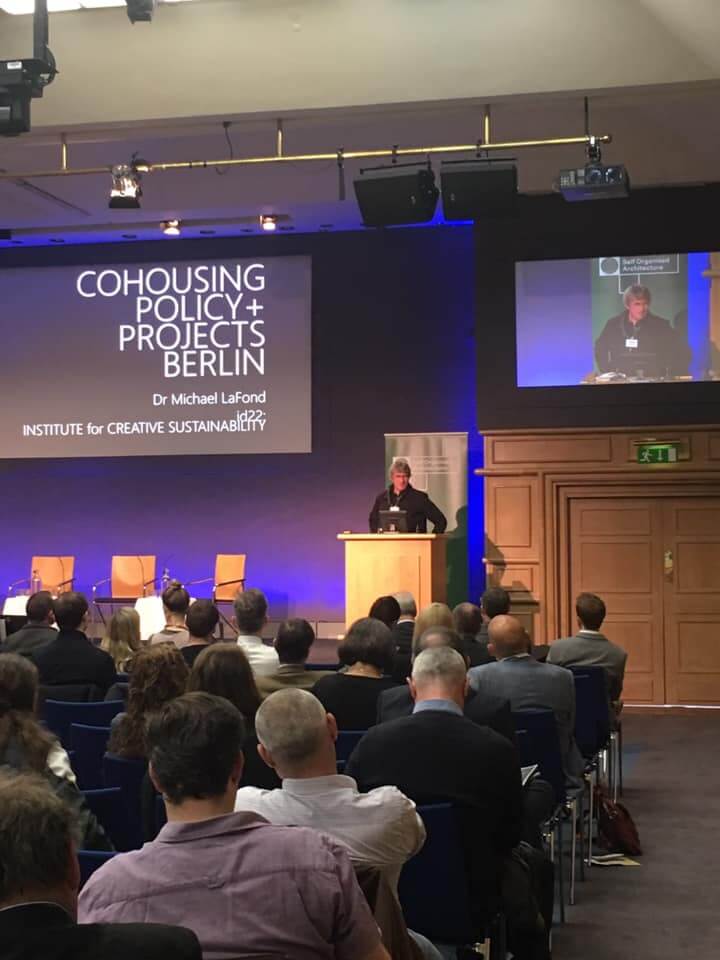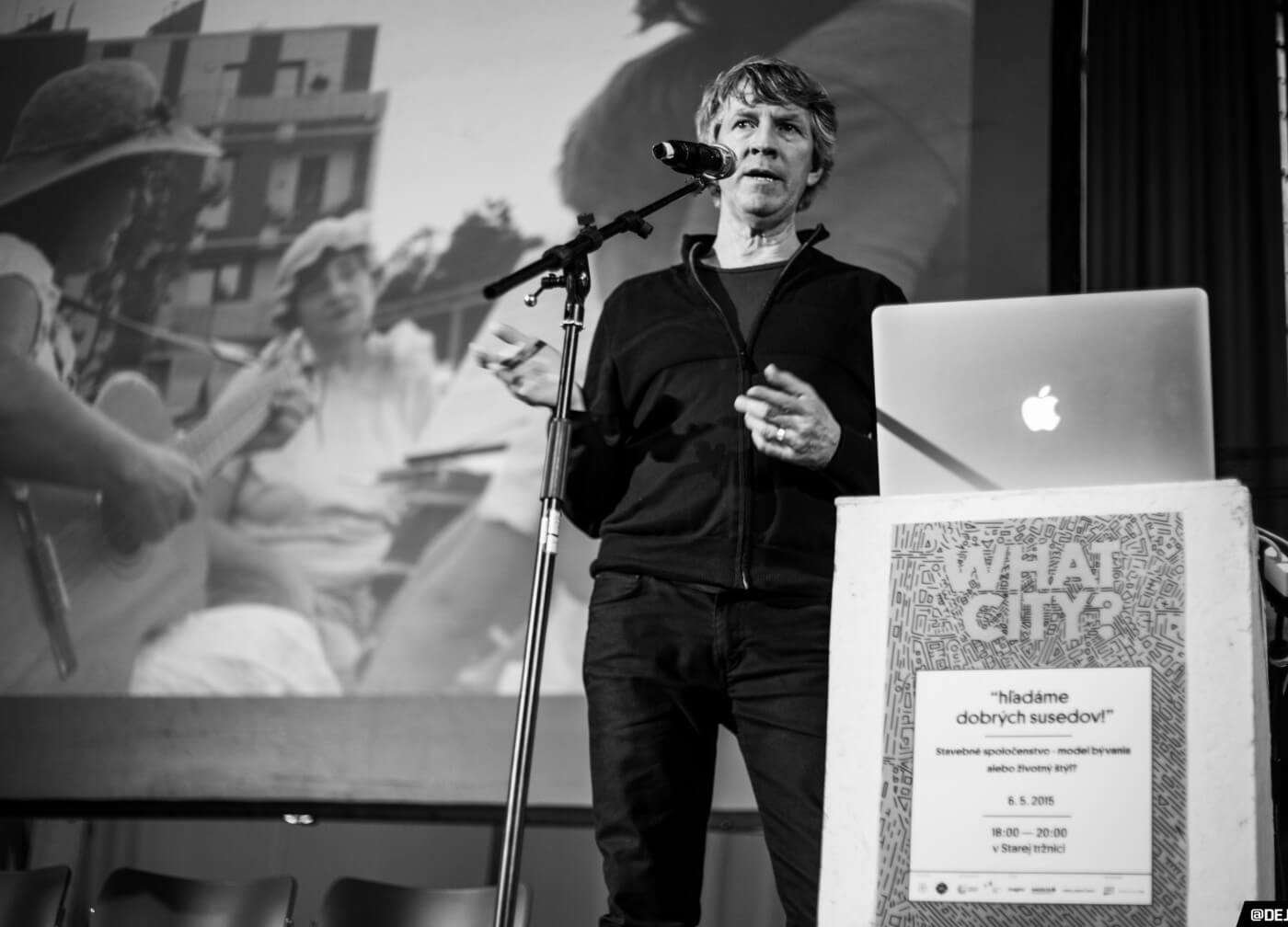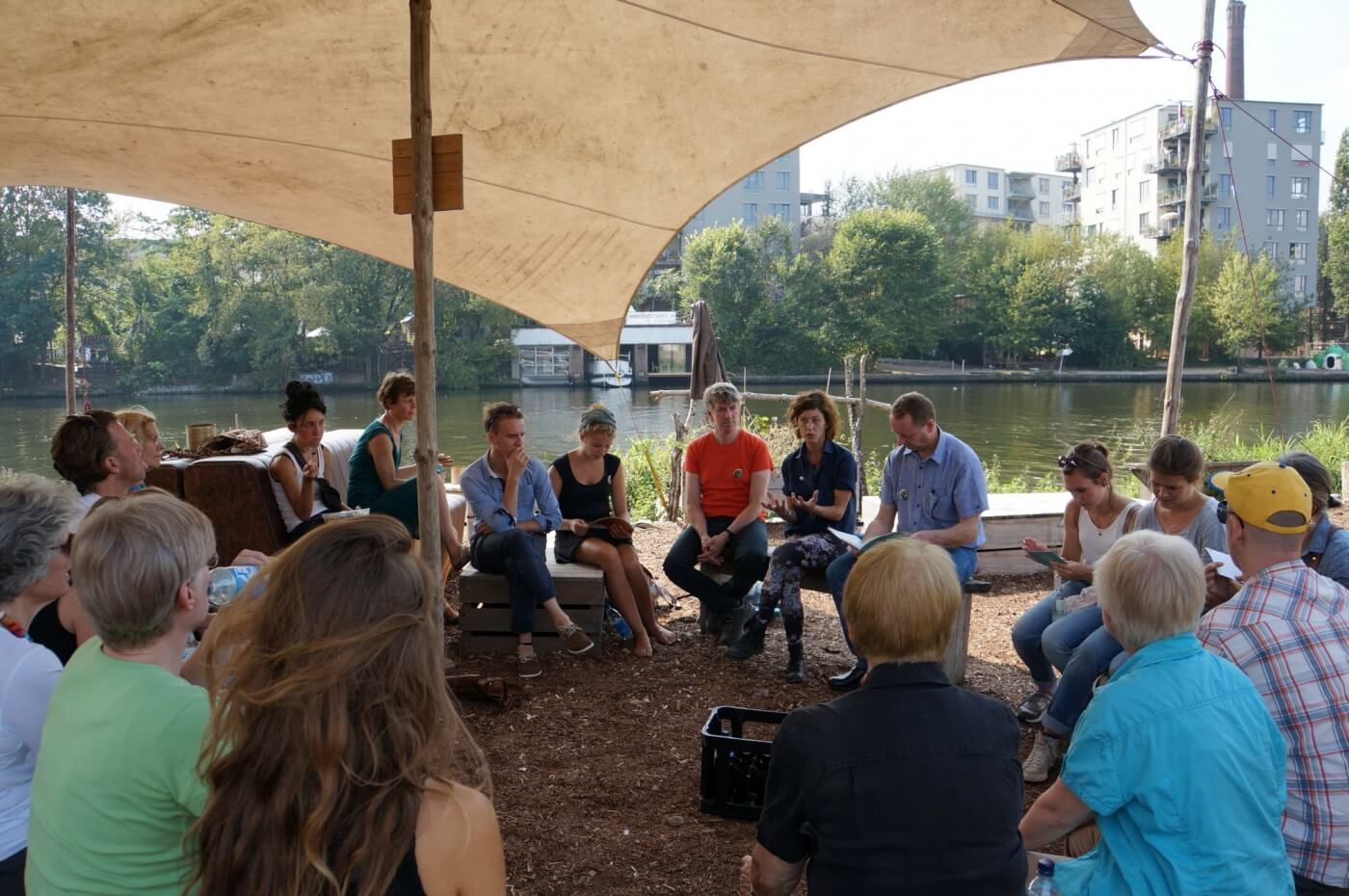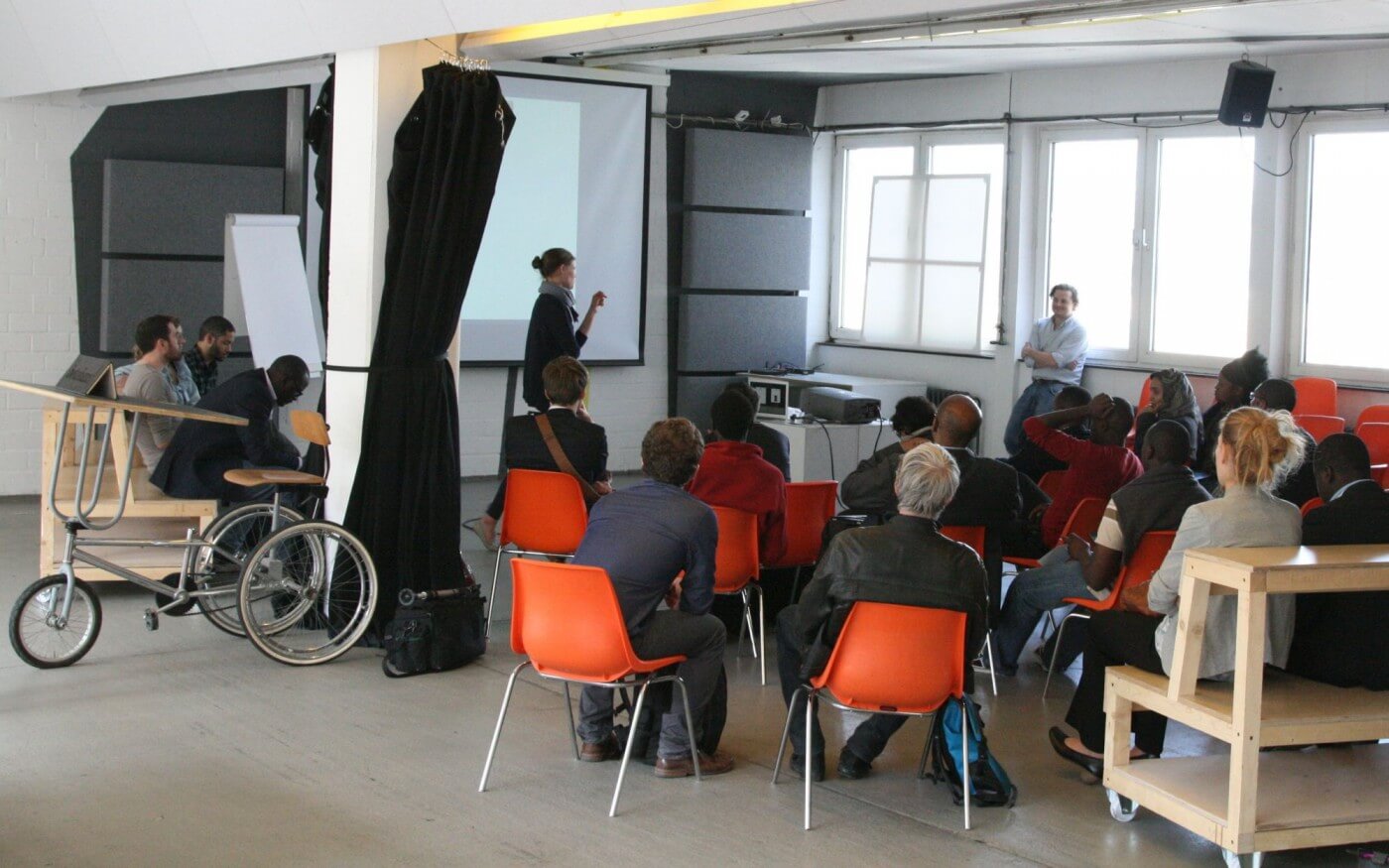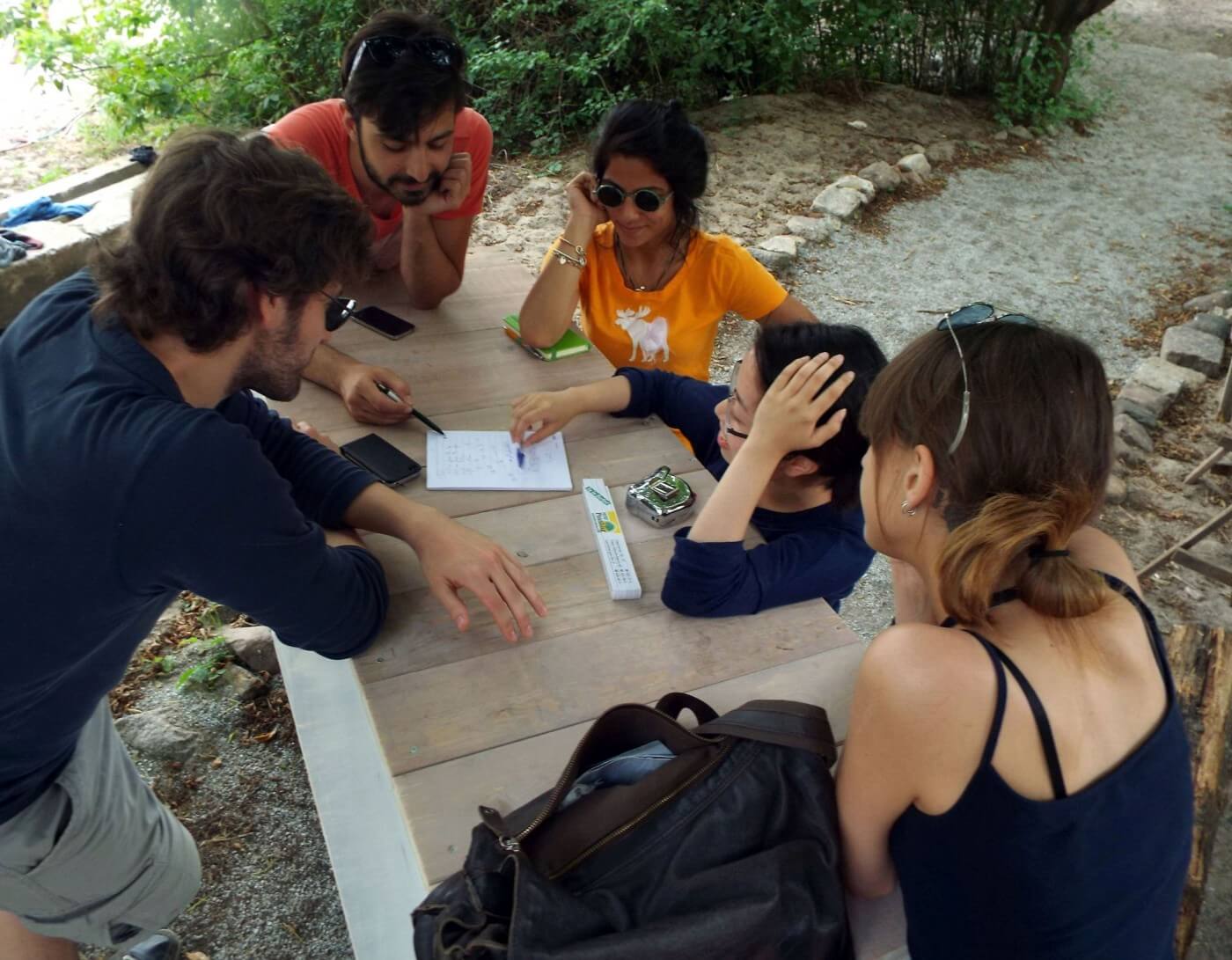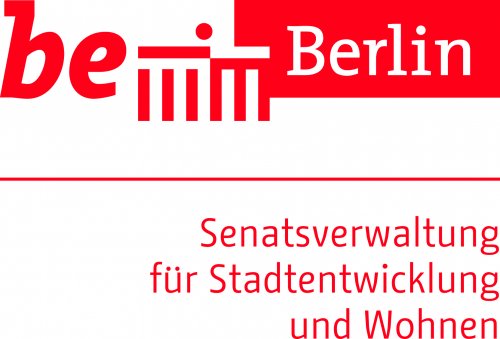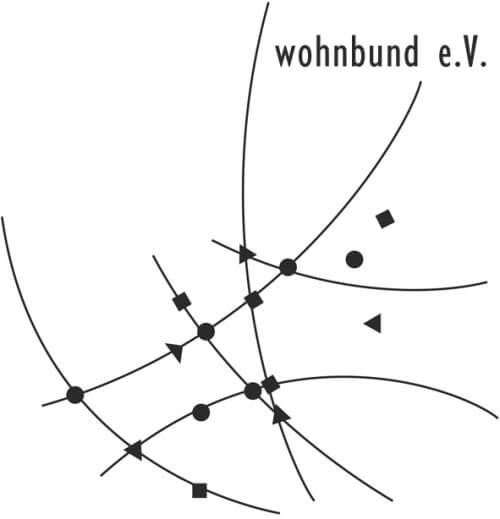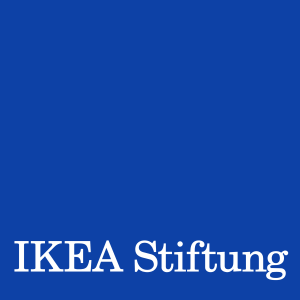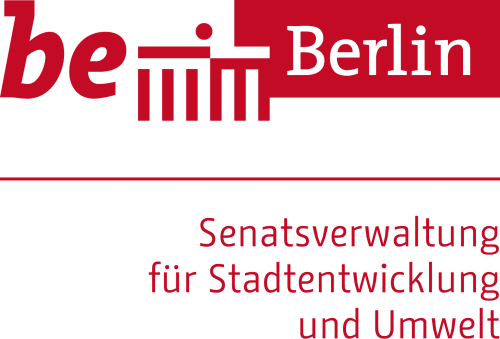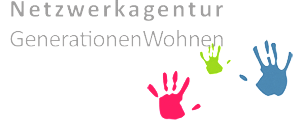Learning offers
Tours & Project Visits
initiatives for renter's rights, social ecology, justice and resistance,
cultural projects and more.
With respect to the emerging crises we offer tours and presentations online as well as in person.
Creative Sustainability tours and workshops are an opportunity to experience Berlin´s best practices which demonstrate that sustainability is not just an academic concept, but a visible part of our daily lives. Our tours are suitable for both residents and visitors, for experts, students, activists as well as youth, and are presented in both English and German (other languages by request).
Workshops & Seminars
We have a bottom-up and transdisciplinary approach to sustainability, transformation, diversity and inclusion that combines architecture, urban planning, geography, arts and social sciences. Our workshops look at creative and participatory solutions as well as at practical ideas of how we can improve our cities and surroundings. The main focus is self-organisation: we are not waiting around for sustainability, but rather acting now to achieve small steps on the way to inclusive and sustainable cities. Therefore, we look at real examples and work with people and projects that are making a difference.
Publications
Social-Ecological Cooperative Housing – eBook
Community-based, transformative building and living
From land speculation and exploding rents to climate change and social inequality, we find ourselves in an age of overlapping crises. As such, it is more important than ever that we rethink the ways we live and share, as well as our systems of land and property ownership.

A social-ecological approach to housing calls on us to holistically address the rapidly growing, overlapping crises impacting this world we live in. Developing more sustainable housing thus means not only increasing efficiency, but also making sure sufficiency and reducing consumption take center stage in the ways we share, live and work together. This brings attention to cooperative housing as an affordable and attractive model that works with community-based, non-speculative land ownership. Transformative strategies emphasizing quality of housing and life are prioritized over quantity and growth. Synergies among the social and ecological dimensions are tapped, including the combination of local potentials in community development and technological advances.
Social-Ecological Cooperative Housing presents pioneering cooperative housing projects in Basel, Berlin, Vienna, and Zurich.
The initiatives and alternative ownership models showcased demonstrate the potential of cooperative practices for the necessary social-ecological transformation of building and living.
This interactive e-book enables and encourages the reader to dive more deeply into individual topics and take action themselves.
- Publisher: Jovis, id22
- Language(s): English / German
- Number of pages: 350
- Format (Type): eBook
- Format (Size): 17 × 24 cm
- isbn: 9783868598353
- Order publication
CoHousing Inclusive
Experimental dwelling forms—CoHousing Cultures—are entering the mainstream. But to what extent are they accessible and affordable for all, including people with more or less money, with or without refugee experience, with or without disabilities?
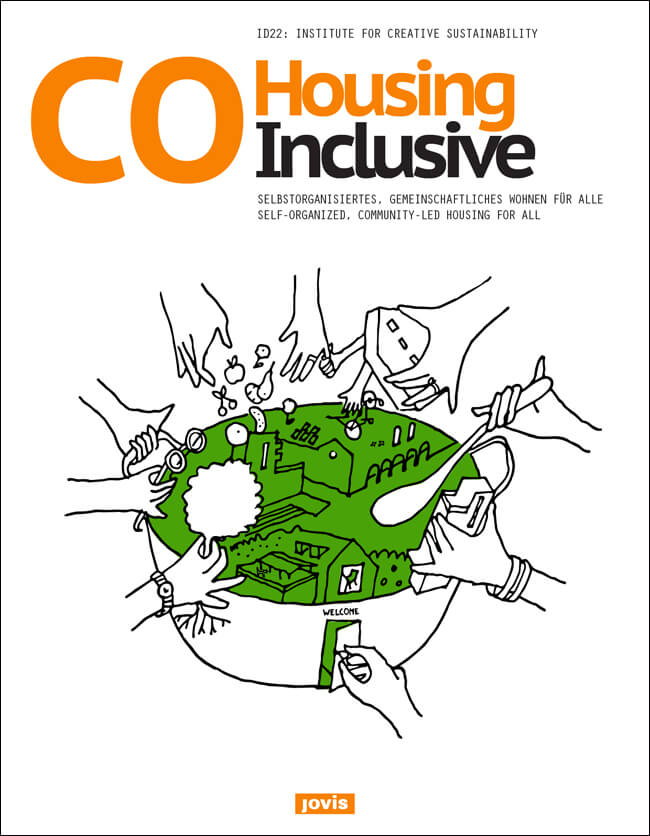
Collaborative, social housing initiatives are already developing such diversifying, sustainable neighborhoods, and are not only supported by civil society, but also increasingly by apartment providers such as cooperatives. This book contains critical reviews of model projects representing a colorful, European movement, complemented with photos and drawings. Short texts argue how political and financial conditions can be improved to better realize collaborative housing. Finally, a range of voices offer unconventional and promising strategies.
Ten different model projects coming from six European cities express a new generation of CoHousing, dealing with issues of affordability, participation, inclusion and neighborhood development.
Four visionary, not yet realized projects from different German cities show how ideas of accessible housing are even further being developed.
Four visionary strategies coming from a number of regions are showing how new community-led housing and neighborhood projects can be assisted by larger, non-profit-oriented development structures.
Feature articles explain both options and challenges regarding ownership and organizational structures, as well as various forms of cooperation.
Statements are included from a large number of housing experts from around the world, to illustrate the diversity of practices, strategies and visions.
We hope this book, with its range of ideas and examples, provides inspiration for many new projects and strategies.
- Publisher: Jovis / id22: Dr. Michael LaFond & Larisa Tsvetkova
- Language(s): German / English
- isbn: 9783868594621
- Ordering information: Please write to institute@id22.net to ask about ordering your copy!
CoHousing Cultures
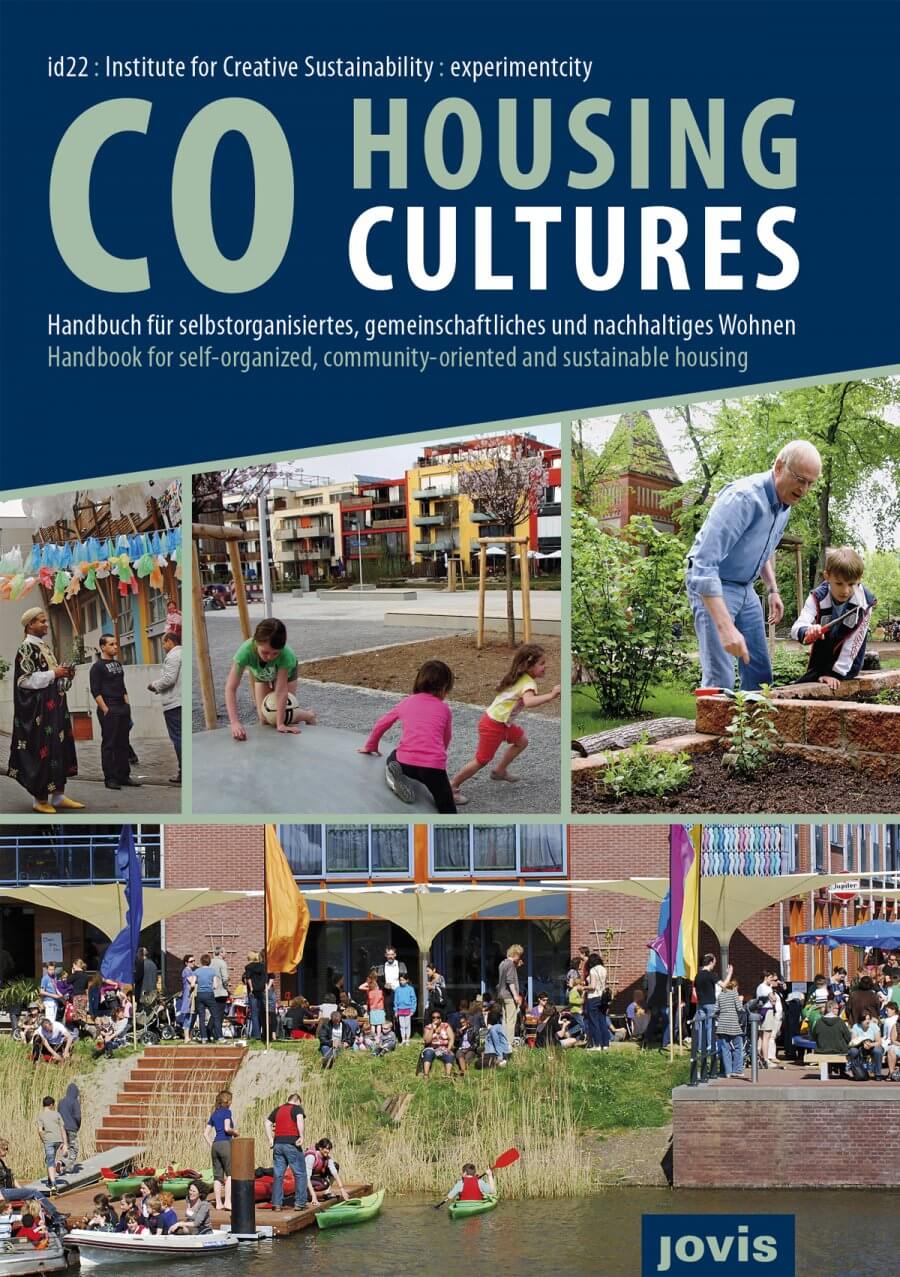
CoHousing Cultures are self-organized, community-oriented and sustainable forms of housing. At the international level CoHousing projects are enjoying a growing popularity and are representative of the diversity of regional housing cultures. Interest in self-determination and cooperation as well as the passionate engagement of an increasing number of people in communities and cities is fueling this unique movement with life and energy. Innovative CoHousing is integrating and non-speculative, open to the neighborhood and motivated by a search for ecological, affordable and socially designed homes. The exhibition as well as the book illustrates a colorful diversity of European examples including a cooperative’s barrier-free renovation of an old school in Berlin, collalborative housing for the 50+ generation in Stockholm and passive architecture planned by and for immigrants in Brussels.
- Publisher: id22
- Language(s): German / English
- Number of pages: 208
- Format (Type): Softcover
- Format (Size): 13 x 18,3 cm
- isbn: 9783868591484
- Price: ORDERING INFORMATION: PLEASE WRITE TO INSTITUTE@ID22.NET TO ASK ABOUT ORDERING YOUR COPY!
Access All Areas
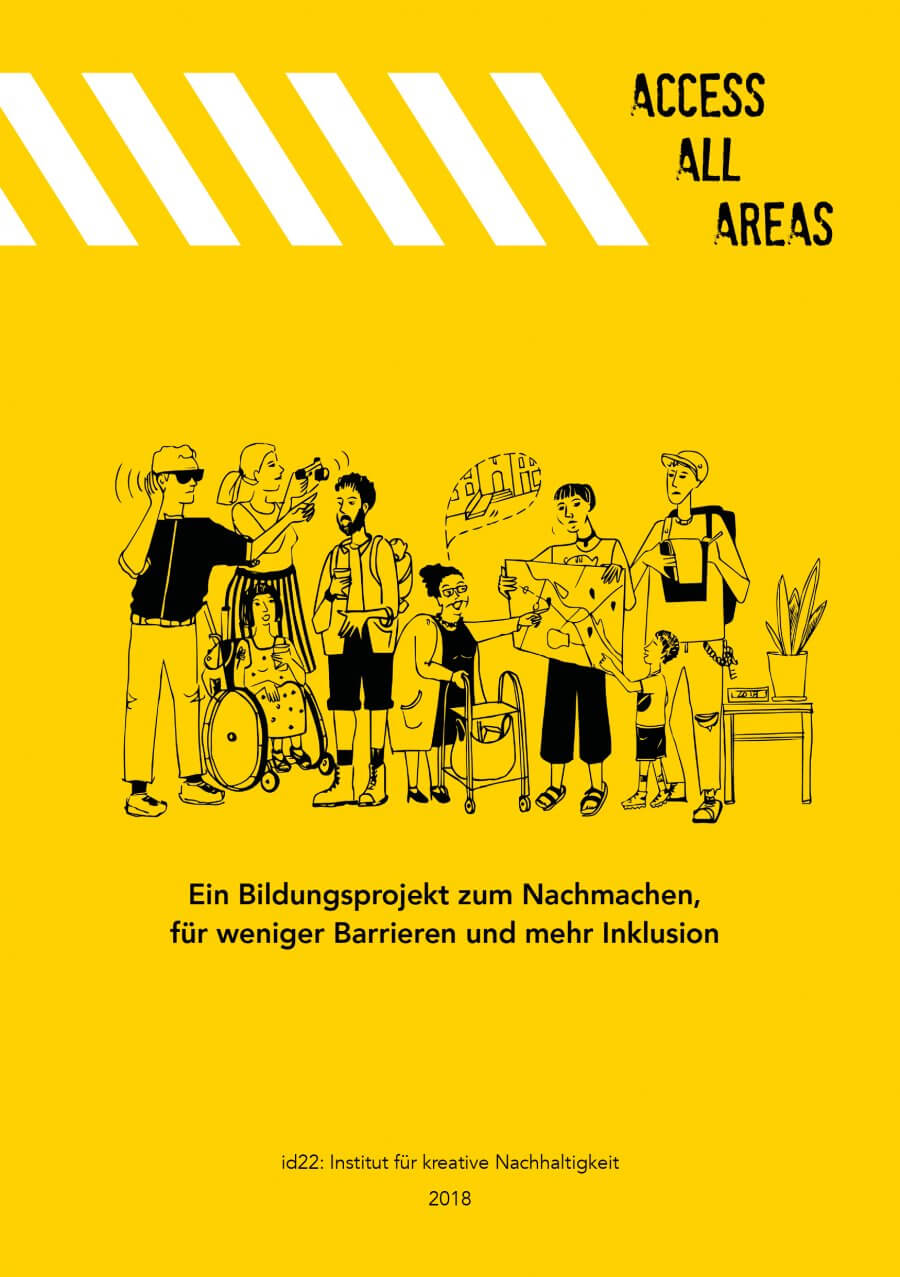
Barrieren in der Stadt und im Alltag führen zur Ausgrenzung. Deshalb sind viele Menschen mit Behinderung eingeschränkt und benachteiligt. Wir sind überzeugt, dass eine zukunfts-fähige Stadt für alle zugänglich sein muss. Dieses Thema wollen wir sichtbar machen. Wir möchten Menschen ermutigen, selbst aktiv zu werden und ihr eigenes Umfeld zu verbessern: Denn
alle profitieren von Barrierefreiheit und Inklusion!
Das Projekt „Access All Areas“ bestand aus drei Bausteinen: Exkursionen (Erleben von Barrierefreiheit und Barrieren),
Diskussionen (Austausch, Reflektion, Vertiefung) und Workshops (Empowerment, gestalterische Mitbestimmung).
Diese Broschüre dient zur Dokumentation der entwickelten Ansätze und Methoden. Wir hoffen, dass die gesammelten Erfahrungen in viele neue Projekte einfließen und unsere Städte ein Stück inklusiver machen können.
- Publisher: id22: Institut für kreative Nachhaltigkeit / Larisa Tsvetkova
- Language(s): Deutsch
- Number of pages: 72
- Format (Type): Broschüre
- Format (Size): A5
Stadtlabor Berlin
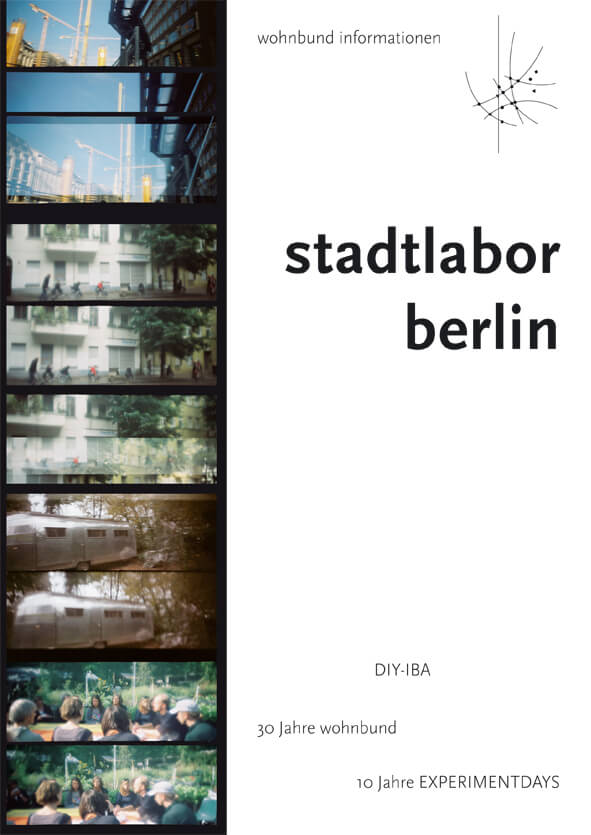
Die Themen des selbstorganisierten Wohnens und der partizipativen Stadtentwicklung in Berlin sind von unterschiedlichsten Seiten beleuchtet werden. Zu Wort kommen (Wohn)Experten und Engagierte, Stadtentwickler und Politik. Vergangenheit und Gegenwart werden diskutiert, bereits bestehende Netzwerkstrukturen wie z.B. das Wohnportal (inzwischen CoHousing) Berlin und das Bundesportal vorgestellt.
Es wird in die Zukunft geschaut. Trotz der im Jahr 2013 plötzlich abgesagten IBA 2020 vernetzen sich ungehindert Akteure des selbstorganisierten Wohnens und gründen Strukturen – partizipativ und aufbauend auf vielen Jahren Erfahrungen und einer Vielzahl von selbstverwalteten Wohnprojekten. Nicht die einzelnen Wohnhäuser sind in den Vordergrund gestellt, sondern im Sinne einer DIY-IBA die Bündelung von Kräften und die nachhaltige Entwicklung eines Modellquartiers. Mit dieser Jubiläumsausgabe des wohnbund Magazins wünschen wir allen Lesern, den vielen Studenten sowie Experten, Politikern und natürlich auch den Aktivisten, eine Fülle von Ideen und das Glück, selbst beteiligt zu sein am eigenen Wohntraumprojekt!
Zum 30. Geburtstag des wohnbund e.V. und zu den bereits seit zehn Jahren bestehenden EXPERIMENTDAYS wurde von der wohnbund Redaktion, von id22: Institut für kreative Nachhaltigkeit und von der Netzwerkagentur GenerationenWohnen, unterstützt von der Stiftung trias, eine Jubiläumsausgabe der wohnbund Informationen erstellt.
- Publisher: wohnbund eV; id22: Institut für kreative Nachhaltigkeit, Netzwerkagentur GenerationWohnen
- Language(s): deutsch
- Number of pages: 52
- Format (Type): Broschüre
- Format (Size): 21 x 29,7 cm
experimentcity europe Broschüre
Allen an diesem Thema Interessierten empfehlen wir die druckfrische Broschüre in englischer Sprache.
- Publisher: Stiftung trias | id22
- Language(s): ENGLISH
- Format (Type): Broschüre
Der Verein als Rechtsform für Wohnprojekte
In Kooperation mit der Stiftung trias, Gemeinnützige Stiftung für Boden, Ökologie und Wohnen, publizierte id22 die Broschüre „Verein als Rechtsform für Wohnprojekte“. Die Broschüre dient der Weiterbildung und Information bezüglich der Umsetzung von Wohnprojekten und unterstützt damit die Entwicklung und Begleitung von innovativen Projekten im Sinne einer sozialen Stadtentwicklung.
- Publisher: Stiftung trias | id22
- Language(s): DEUTSCH
- Number of pages: 24
- Format (Type): Broschüre
- Format (Size): 16,5 x 24 cm
- Order publication
- Ordering information: Stiftung trias unter Angabe der Adresse und des Stichwortes “Verein-Br.”
Articles
Regionale Kooperationen im Kulturbereich
Die Bedeutung regionaler Kooperationen im Kulturbereich nimmt zu. Während einerseits die Grenzen der Einrichtungen bzw. der Kultursektoren durchlässiger werden, steigt andererseits der Druck durch die gesellschaftlichen und wirtschaftlichen Verhältnisse. Um diesen Herausforderungen gerecht zu werden, setzen regionale Akteure zunehmend auf die vielfältigen Optionen der Zusammenarbeit.
Verstärkt werden diese Entwicklungen durch das Governance-Konzept, das in den vergangenen Jahren vermehrt im Kontext einer aktivierenden Kulturpolitik diskutiert wird. Viele Wissenschaftler und Praktiker haben das 21. Jahrhundert bereits zum »age of alliances« ausgerufen. Sie sind davon überzeugt, dass der Grad der Kooperationsfähigkeit einer öffentlichen oder privaten Non-Profit-Einrichtung künftig über deren Existenz entscheiden wird. In diesem Sinne zeigen die Beiträge dieses Buches Grundlagen und Möglichkeiten regionaler Kooperationen im Kulturbereich auf.
Das Buch wendet sich in theoretischer und praktischer Ausrichtung an interessierte Wissenschaftler und Studierende ebenso wie an Praktiker aus dem öffentlichen, frei-gemeinnützigen sowie privaten (Kultur-)Sektor.
